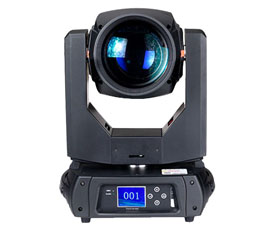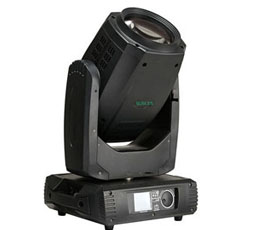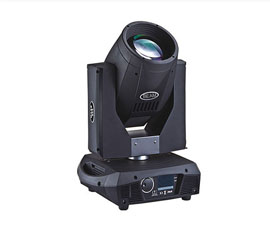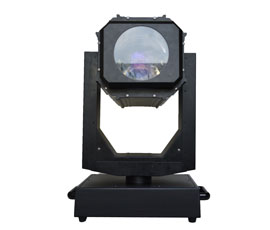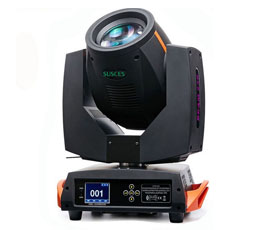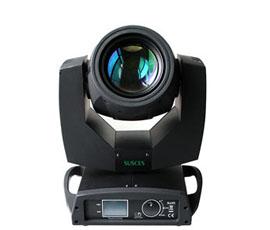
Factors that can influence the performance of the performance and solutions
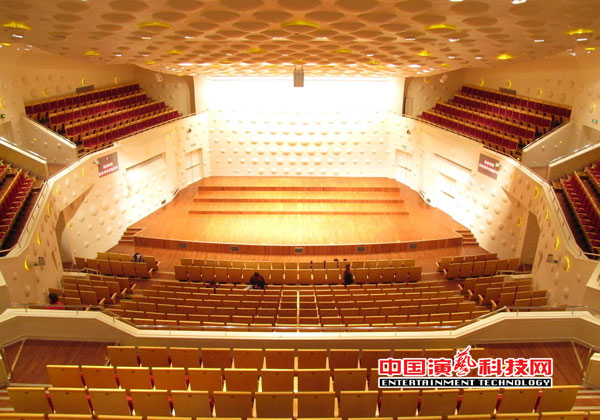
Performing artists always want their performances to be praised by the audience, can be "fans" of their appreciation, but often appear to perform their performance is not satisfied with the situation. In a forum, a well-known Huangmei opera put forward, in a light, sound equipment conditions good theater performances Huangmei opera, always feel the characteristics of Huang Mei Opera is not fully reflected, do not know why.
China has a very rich cultural resources, many types of opera, there are Peking Opera, Shaoxing opera, Sichuan opera, etc., these plays on the performance of the hall, equipment, sound what requirements, is not very clear. Now the domestic theater design are invited foreign experts, equipment are chooseed the most advanced international equipment, such a theater to meet the needs of various drama performances? Such as a good quality, the frequency response is very flat microphone, can be suitable for a variety of different sound signal pick up? Is a loudspeaker system with a very low frequency response capable of releasing a variety of different sound effects? The answer is clear: impossible. This article from a technical point of view, to discuss the impact of the performance of many factors. It is suggested to study the power spectral density of the main aria of the play to obtain the standard program source signal of the play, and provide the scientific basis for the sound quality design.
1 affect the performance of the three factors
Now the development of science and technology, has been able to do in the venues, as long as the request, generally can meet. The question is what is this "requirement"? Often not clear, do not come out.
1.1 Halls
We know that there are many factors that affect the performance of the hall. From the architectural acoustics, the distribution of indoor sound field by the hall of the various interfaces. Acoustic waves incident to the interface cause a series of reflections, scattering, transmission and absorption. The simple mode of the room is influenced by the shape of the hall and the wall, which may cause the sound of certain frequencies to be strengthened or weakened. The spread of sound waves in the room, so that the spatial distribution of sound energy has changed. Sound sound in the room after the sound, the sound waves in the indoor reflection and absorption, making the indoor sound pressure level gradually increased, when the sound source stops the sound, the sound will not immediately disappear, to go through a gradual decay process, this process is called mixed Ringing process. The time required for sound energy to decay 60 dB is called reverberation time. Indoor reverberation time is relatively short, the sound sounds more dry, but more clear; reverberation time is longer, increasing the fullness of the sound, too long will make the sound muddy. In addition, the reverberation time is a function of frequency, the treatment is not good, directly affect the performance.
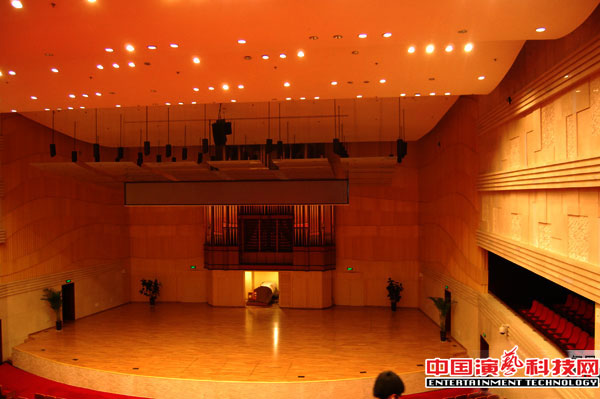
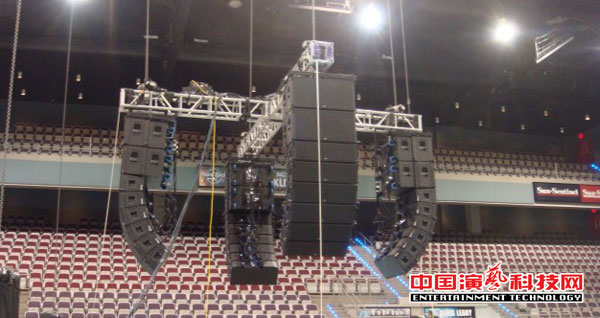 1.3 program signal source affect the performance of many factors above the hall to the sound quality design based, through the sound design to ensure that the venue has a reasonable natural reverberation, good diffusion, uniform transmission characteristics, which is to determine the sound quality Prerequisites; coupled with high quality electroacoustic systems to compensate for the lack of natural sound. The two complement each other to the natural sound-based, to ensure that the audience has a good sound quality and satisfactory performance. Affect the performance of the show In addition to the hall and sound reinforcement system, but also with the program source is directly related to the different programs on the hall and sound reinforcement have different requirements. For example, the symphony requires room reverberation for a long time, low frequency should be appropriate to enhance the increase rate of about 10% to 25%; for local drama, generally require reverberation time can not be too long, usually 1.1 s-1.2 s. Reverberation time frequency characteristics should be straight, or low frequency slightly improved, precise control and the program of the program source power spectrum. The design and debugging of the PA system are more closely related to the power spectrum of the program source. The effect of the local theater performance is not ideal and may be directly related to the system debugging.
1.3 program signal source affect the performance of many factors above the hall to the sound quality design based, through the sound design to ensure that the venue has a reasonable natural reverberation, good diffusion, uniform transmission characteristics, which is to determine the sound quality Prerequisites; coupled with high quality electroacoustic systems to compensate for the lack of natural sound. The two complement each other to the natural sound-based, to ensure that the audience has a good sound quality and satisfactory performance. Affect the performance of the show In addition to the hall and sound reinforcement system, but also with the program source is directly related to the different programs on the hall and sound reinforcement have different requirements. For example, the symphony requires room reverberation for a long time, low frequency should be appropriate to enhance the increase rate of about 10% to 25%; for local drama, generally require reverberation time can not be too long, usually 1.1 s-1.2 s. Reverberation time frequency characteristics should be straight, or low frequency slightly improved, precise control and the program of the program source power spectrum. The design and debugging of the PA system are more closely related to the power spectrum of the program source. The effect of the local theater performance is not ideal and may be directly related to the system debugging.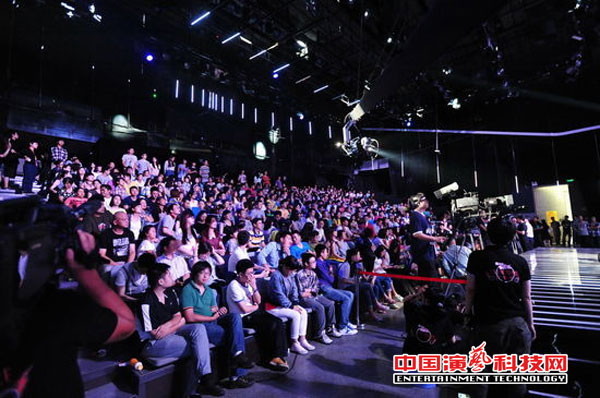 Among the many factors that affect the performance of the performance, the spectral characteristics of the program source is an important parameter, it is the main basis for sound quality design. In order to test the reliability of the electro-acoustic device and to guide the power distribution of the loudspeaker system, the IEC60268-1C standard specifies the source of the program for the loudspeaker system, in order to test the reliability of the electro-acoustic device and to reproduce the program signal in the loudspeaker system. - the characteristics of the analog program signal, which comes from a variety of language sources for various languages and music program signals. Music programs have a strong characteristics of the times, in the 20th century, 80 years ago, the community is mainly popular classical music, the average power spectral density to 700 Hz as the dividing point, low frequency components accounted for 87%, high frequency components accounted for 13%. If you use this distribution of the speaker system to play pop music, the loudspeaker system of high-frequency unit is very easy to damage. In the early 80s, Nanjing University Institute of Acoustics and Nanjing 714 plant has experienced such an event. In the 1970s, due to the rise of popular music, especially the rise of electronic music, the high frequency component of the program source was obviously increased. The IEC revised the original specification for the analog program signal, and the low frequency component was reduced to 60% 40% of the ingredients to meet the needs of todays programming. Solution: to find the standard program source signal in the show, in order to get a satisfactory sound effect, although there are many factors affecting them, I believe that the first program should be different of the program source spectrum of the investigation, detection, given the drama Standard program source signal (spectrum), because this signal reflects the characteristics and personality of the play. With this spectrum, the architectural design of the professional theater has an irreplaceable guiding significance for the design and debugging of the audiovisual design and sound reinforcement system of the hall. It can play a key role in whether the performance can fully reflect the characteristics of the opera.
Among the many factors that affect the performance of the performance, the spectral characteristics of the program source is an important parameter, it is the main basis for sound quality design. In order to test the reliability of the electro-acoustic device and to guide the power distribution of the loudspeaker system, the IEC60268-1C standard specifies the source of the program for the loudspeaker system, in order to test the reliability of the electro-acoustic device and to reproduce the program signal in the loudspeaker system. - the characteristics of the analog program signal, which comes from a variety of language sources for various languages and music program signals. Music programs have a strong characteristics of the times, in the 20th century, 80 years ago, the community is mainly popular classical music, the average power spectral density to 700 Hz as the dividing point, low frequency components accounted for 87%, high frequency components accounted for 13%. If you use this distribution of the speaker system to play pop music, the loudspeaker system of high-frequency unit is very easy to damage. In the early 80s, Nanjing University Institute of Acoustics and Nanjing 714 plant has experienced such an event. In the 1970s, due to the rise of popular music, especially the rise of electronic music, the high frequency component of the program source was obviously increased. The IEC revised the original specification for the analog program signal, and the low frequency component was reduced to 60% 40% of the ingredients to meet the needs of todays programming. Solution: to find the standard program source signal in the show, in order to get a satisfactory sound effect, although there are many factors affecting them, I believe that the first program should be different of the program source spectrum of the investigation, detection, given the drama Standard program source signal (spectrum), because this signal reflects the characteristics and personality of the play. With this spectrum, the architectural design of the professional theater has an irreplaceable guiding significance for the design and debugging of the audiovisual design and sound reinforcement system of the hall. It can play a key role in whether the performance can fully reflect the characteristics of the opera.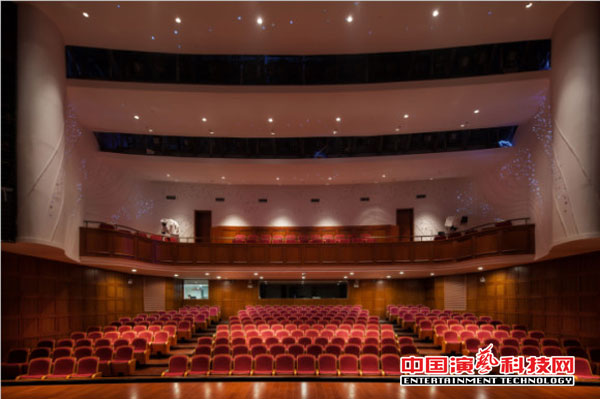 The method of obtaining the program source signal (standard power spectral density) suggests: (1) chooseing a number of segments representing the play. (2) the scene to pick up the program signal (should be in the acoustic processing, reverberation time is relatively short indoor performance, recording, as far as possible without acoustic signal processing device, recording equipment should have a large enough dynamic range, Etc.). (3) obtains the power spectral density of the program signal by the spectral analysis device. (4) Finally, the power spectrum density of multiple segments is averaged to obtain the standard program source signal of the play.
The method of obtaining the program source signal (standard power spectral density) suggests: (1) chooseing a number of segments representing the play. (2) the scene to pick up the program signal (should be in the acoustic processing, reverberation time is relatively short indoor performance, recording, as far as possible without acoustic signal processing device, recording equipment should have a large enough dynamic range, Etc.). (3) obtains the power spectral density of the program signal by the spectral analysis device. (4) Finally, the power spectrum density of multiple segments is averaged to obtain the standard program source signal of the play.
